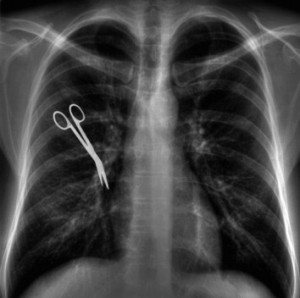Healthcare data unchained!
We often hear the aphorism, “Anything put on the internet, stays on the internet.” I suggest a corollary, “Anything put on a computer can be retrieved by a determined inquisitor.” So it is even for the most intimate of personally identifiable information – healthcare records. Given massive nationwide efforts to digitize our healthcare encounters, and given the frequency with which those digits are shared among insurers, contractors, researchers, public health officials, health information exchanges, pharmaceutical companies, healthcare providers, and the host of other interested parties who claim a legitimate interest, it is inevitable that data will go astray and be misused – illegally or inappropriately! It is said of computer hard-drives that one does not ask if a failure will occur, but when. I maintain that the same dictum holds true of personal health information. If computer-wielding crooks can steal from banks (which we assume use the highest degree of on-line and network protection), how impregnable is the healthcare industry? Apparently not so much.
Big data-hack at Anthem.
Earlier this month, health-insurer behemoth Anthem announced that the personal healthcare and credit card information of as many as 80 million of its customers may have been compromised. A secondary wave of attacks is already occurring as scammers send email warnings pretending to be from Anthem or credit-protection companies seeking to extract even more personal information from frightened Anthem customers. The Anthem breach strikes close to home. At last week’s UofL board of Trustees meeting, it was announced that some 5700 UofL employees might be on the Anthem list. I may be one of them. Not a good feeling. I feel violated enough when my personal healthcare information is being used to target me with marketing propaganda cloaked as important medical information. Having the same information in the hands of bona fide crooks gives me the willies. Continue reading “Breach of Personal Healthcare Information at Anthem.”

